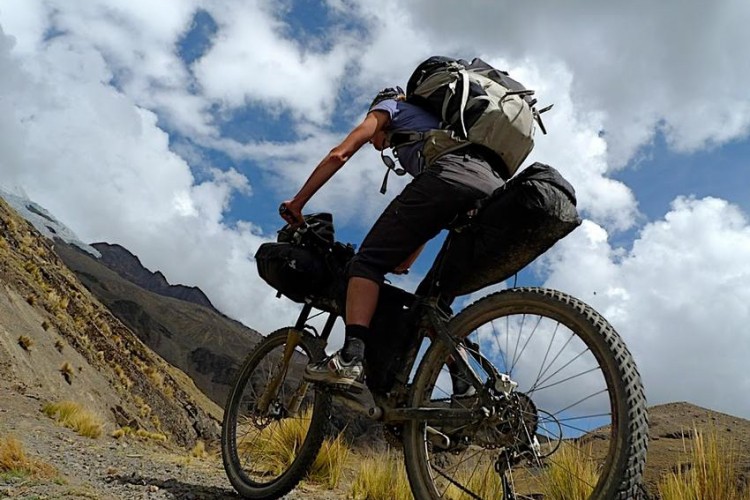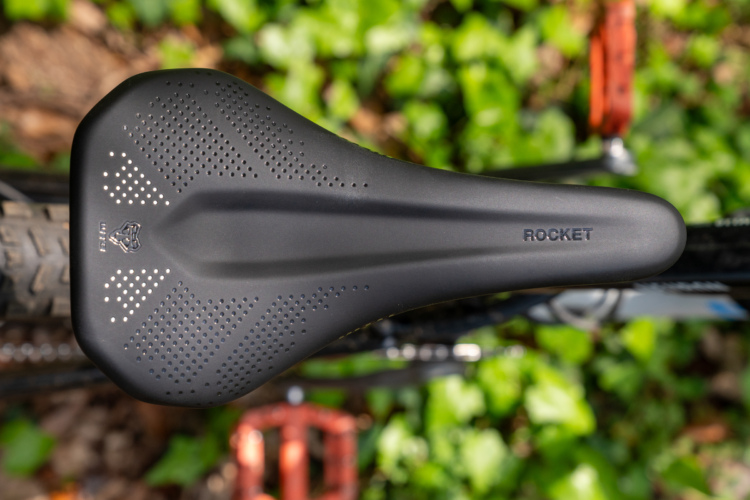
Time.
It is the ultimate non-renewable resource. If we break something, we can buy a replacement. If we lose some money, we can make some more. Some things grow, some things shrink, and some things stay the same. But time? It just… disappears. We get one shot, and one shot only, at each and every one of the infinite moments we will experience in a lifetime; a lifetime we know not how long it will endure.
Making the most of our tiny slice of the infinite is a major concern to us all. It’s sad to hear someone say “I’d like to ________, but I just don’t have the time.” Even sadder to hear “I wish I had done ________ while I had the chance.” But the saddest thing of all is knowing that, more often than not, the time was there, and we just didn’t make proper use of it. We can’t actually “make time,” but we sure can make the most out of the time we have. For me, that means carving out time for biking, and not letting other, less important things, interfere with that time. Except in the most extreme and unusual of circumstances, it is really rather easy to have plenty of time to ride while still maintaining balance and not neglecting other important aspects of our lives.
[see_also id=”200392″][/see_also]
Most amazing is how easy it is to do, assuming we’re willing to set, and follow, priorities. Even more amazing is how easy it is, and how universally people abandon this. What follows are two rather obvious, but all too often ignored or forgotten principles of time management that can have almost anybody rediscovering tremendous amounts of time for riding (or anything else, for that matter).
Time Management Principle #1: Turn off the electronics!

When I was a kid, there were times Mom would tell me to turn off the television and go outside. Sometimes, I was cool with this, sometimes not so much. (I suspect I’d have been cool with it a lot more often if I had had a mountain bike!) The upshot of this was that, anytime I complained I didn’t have time to do something, all she had to do was point to the amount of time I spent inert on the couch with both mind and body disengaged, watching some inane TV show. There was no defense. If I said it was unfair to have to do so many chores because it left so little time for what I wanted to do, the finger just pointed to the TV and I knew it was time to shut up.
We all have work and family commitments which eat up the bulk of our time, but what comes next? Is it the TV? That would seem to be the case for most of us. According to the Nielsen rating company, the average American watches more than 5 hours of TV per day! That’s a helluva bike ride right there. Just cut that and that alone, and you’ll have more time for the bike than you have either leg or lung.
When I was a young teen, the earliest console video games which could be plugged into a TV were being marketed. Well, there’s another time sink! One day while watching my son and his friends, my oldest daughter once said, “Video games are the Devil.” I must say I applaud her astute observation. Today, video games are more sophisticated, and the effect is greatly magnified. Some scientists believe video games are as addictive as hard drugs. As with any addiction, they can eat time so subtly that the addict never even realizes what is happening.
Even more insidious is the smartphone (and/or Kindle, iPad, etc.), with all their seemingly innocuous and “helpful” apps. How easy it is to simply tap one little icon and then, in what seems like minutes, find we’ve wasted hours.
As if TV and video weren’t enough, then comes the greatest time sink of all: the internet. How easy it was to save time before this handy little tool came along. The average American also spends at least an hour a day on mindless surfing, let alone all the other “more legitimate” uses our connectivity provides us with.
Here’s my advice: turn on the computer, briefly get caught up on the relevant mountain biking news of the day on Singletracks.com, then shut off the computer and go ride!
Time Management Principle #2: Incorporate your passion into your life

Hey, it’s your passion, so obviously it is a part of your life, right? Maybe so, but that doesn’t mean you’re making the most of the opportunities. In another tale of my pre-mountain biking youth, I was obsessed with basketball. Once of driving age, I never went anywhere without a properly-inflated ball, some shorts, and a pair of high tops in my back seat or trunk. If I was running errands or simply going from point A to point B and I passed by a park or playground where people were hooping, I would pull over, suit up, and get into a pickup game. I just came by this naturally, but it taught me at a young age how easy it is to mix pleasure with “real life.” Today, I take my bike almost everywhere. Whenever I pass by a trail system, especially one I haven’t ridden before, the bike comes out of the pickup bed or back seat and I go for a spin.
To some degree, I have had the benefit of work which facilitates this. I travel for work frequently, and I usually get to drive, so along comes the bike. On a travel day, I may eat a sandwich in the car and use what would otherwise be lunch time to stop at a trail system along the travel route and get in a ride. When away from home without my family, that provides the best possible time for an after work ride. After all, what else am I going to do; sit in the hotel room and watch TV or surf the net? There’s no comparison.

For years, I have had the opportunity to mountain bike to and from work. This is rare, though, and I’ll soon be joining the ranks of auto commuters like many of you. But while I’ve lost my opportunity to mountain bike commute, I can swing by a trail between my work and home locations with not too much detour, so I’ll be switching to before or after work rides in conjunction with my commute, rather than being the commute itself. The majority of us have such opportunities near home, work, or somewhere in between.
[see_also id=”200394″][/see_also]
Granted, not everyone has this type of lifestyle, but no matter who you are, other opportunities are present if you look. Almost any vacation will present opportunities to ride. With 16 waking hours in a day, sneaking out for one or two is usually acceptable. Even when the family needs to be together all day, I have gone out on dawn patrol on the bike and been back at the resort and showered by the time the family gets out of bed (and I am not a morning person).

As my son grew old enough to ride, mountain biking became a passion we shared. Suddenly biking time and family time became one. Now with kids grown, my wife and I plan vacations where we can both indulge our passions, even if they don’t align. With so much waking time, we can spend a few hours apart and still enjoy a rich, full day together.
The bottom line is that, short of an extreme case like being a single parent working two jobs and supporting an invalid aging parent, most of us have plenty of opportunity to “make time” for riding. We just have to prioritize, eliminate the time sinks, and seek opportunities wherever they can be found. It’s really very easy in principle, but admittedly somewhat more difficult in actual execution. Once you start, and incorporate the mindset and action into your daily life, it becomes second nature. You get better and better at finding those opportunities, and by clearing the clutter you actually achieve greater balance in life even though you’re riding more.
How perfect is that?
[see_also id=”198409″][/see_also]
Your turn: Tell us how you “make” time for your passion in the comments section below:






















4 Comments
May 10, 2017
May 9, 2017
May 9, 2017
Jun 12, 2017